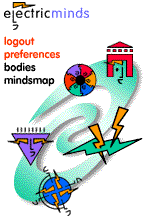
|

|
Corporate Agents Agent technologies are proliferating on the Internet as potential solutions for the infoglut that the net's phenomenal growth has generated. The increasing inadequacy of simple word-search algorithms has sent search-engine companies scrambling for technologies that will introduce an element of intelligence to their products' capabilities. Intelligent agents are one of the technologies they're turning to. The arena in which we can expect the most rapid advances in agent technology is probably the business world, for several reasons. First, the business world is the largest customer for information and information technology. Michael Dertouzos, director of MIT's Laboratory for Computer Science, makes a distinction between information as deliverable content and information as work. "Star Wars," a song by Machines of Loving Grace, a Zona Research market prediction, and the CBS Evening News are all information products. But such products constitute a fairly small proportion of the economic value that drives the information economy. At a recent presentation at Xerox's Palo Alto Research Center, Dertouzos estimated that the economic value of what he called "information in the Rupert Murdoch context" (which Dertouzos also calls "information as noun") currently comprises only about 5 percent of information-economy transactions. He estimated that 50 to 60 percent of the economy's activity and transactions take place in the office world, in the process of work--what he calls "information as verb." Second, the world of the corporate intranet provides a much more controlled and tractable domain in which to develop intelligent-agent capabilities and techniques. Limiting the domain in which agents must function drastically reduces many of the difficulties that result from conflicts of terminology or concepts. It also allows programmers to maximize domain knowledge for the agents. In addition, corporate data structures and protocols often provide the leverage to expand agents' efficacy. Such structures can give software agents the means to access data necessary to exercise their intelligent capabilities. Third, the stakes are much higher for businesses implementing agent technologies than for consumers. The benefits are largely a matter of convenience or minor cost savings for consumers. For businesses, in today's competitive environment, the benefits emerge in terms of survival. Agent technology is an important part of Lotus Development's Domino Web systems. Domino.Broadcast users can send agents to search competitors' websites for price changes, then broadcast the information internally so the company can make appropriate price adjustments. Agentware's Autonomy depends on Cambridge Neurodynamics' Dynamic Reasoning Engine to provide learning capabilities for the product's agents. The engine uses neural-net technology to establish information patterns to use in future searches rather than keywords. The user can refine the agent's conceptual knowledge over time. IBM's Globenet periodically dispatches rule-based agents to retrieve newsgroup postings that refer to IBM products. Globenet can identify questions as such and categorize, prioritize, and deliver information to particular users. Andersen Consulting's Center for Strategic Technology Research developed an agent-based system, ContactFinder, to monitor the company's Lotus Notes databases. The agents extract questions and refer the questioners to employees with relevant expertise. The system was created in response to employees' lackadaisical attendance to electronic bulletin boards. As companies begin to use websites to disseminate policy statements and notification of legal requirements to employees (during the hiring process for example), they want a way to determine whether employees have read the information. Administrators can program agents to watch web pages and record which employees have accessed the pages and for how long. The agent cannot guarantee, of course, that the employee has actually read the page, so signatures on paper will remain the only legally binding assurance for the meantime. It's a fairly controversial application, since agents that monitor web pages present a significant potential for the abuse of employee privacy. The NextLink and ProcessLink projects at Stanford University use agent-based technology to enable engineers in remote locations to collaborate in the design process using various electronic media, including email, conferencing software, video content, and CAD-CAM documents. Because participation is not time-constrained (engineers contribute to the process on disparate schedules), incremental revisions can cause conflicts. The systems use agents to track when and where conflicts arise and to notify participants. Problems can arise because of either participant preferences or violation of a project's defined engineering constraints. Generalized constraint manager agents ride herd on less robust agents that track changes in particular engineering domains. In the manufacturing sector, the U.S. Defense Advanced Research Projects Agency, the U.S. Air Force, Lockheed Martin, Texas Instruments, Rockwell, and other companies are cooperating on the development of a software infrastructure for the Agile Infrastructure for Manufacturing Systems (AIMS). AIMSnet will use intelligent agents to link manufacturers, customers, suppliers, and service brokers in order to execute business processes. The system will see first use in enabling rapid prototyping and fast-turnaround, small-lot production of parts for the Lockheed Launch Vehicle project. AIMS-specific protocols will ride on top of secure HTTP and will be accessible with standard browsers. Intelligent agents will handle (issuing, processing, bidding on, and awarding) requests for quotations (RFQs), coordinate production schedules, balance loads among vendors, and notify appropriate team members of design changes. The intent is to create a virtual enterprise that will reduce cycle time and costs by 25 percent to 30 percent. Mediating and executing RFQs with intelligent agents? Sounds like the process will be more cooperative in some ways, but more competitive in others. In any case, intelligent agents are likely to bring significant changes to the process of doing business.
For more information |
needtoknow said: Some companies are experimenting with combining changing price lists with corporate email showing customer/prospect requests. They could also be combined with projects up for bid from publications like Commerce Business Daily (for government projects) and onsale.com and other Web-based transactional services. Most Active Topics: Topic 1 Conference Business Topic 3 Conference Introductions Topic 23 Pliny Fisk's Resource Tracking DB | ||||||||||||
| |||||||||||||
Also in Tech Scan: Learning and Cognition Chemistry Lab on a Microchip DNA Arrays | |||||||||||||

